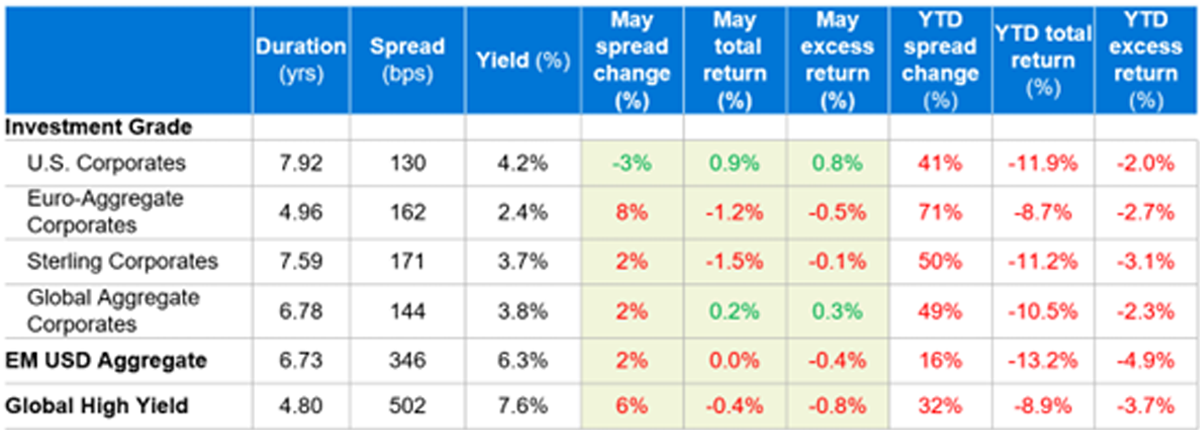Key points from June’s credit strategy meeting
- Tighter financial conditions led us to lower our short-term for the US, UK and global market to -1. We remain slightly positive at +1 in Europe as valuations appear attractive and we see the economic backdrop as more positive.
- Our long-term scores for the US and Europe are -1 due to geopolitical pressure and our negative outlook on corporate strength. In contrast, we have increased our score for the UK to neutral as its corporate strength appears more solid.
- We increased our score on High Yield to +1 due to moderating inflation fears and our core view that there will be no material default cycle due to solid economic fundamentals.
- The EM team maintained their short-term score of +1 in the face of the significant value now offered by their market on an all-in yield basis.
Market summary
- May saw falling equity and bond markets on growing fears of a US recession and signs of slowing economic activity in other developed markets.
- Inflation remains a significant drag on the US and eurozone. Yields on US Treasuries fell and the curve steepened, while European government bond yields pushed higher but led to a flatter curve as investors priced in a more aggressive rate hiking cycle.
- Spreads widened across most major credit markets. Emerging markets saw a mixed picture, with oil-exporting countries outperforming. The Turkish lira traded cheaper thanks to an unconventional approach to combatting inflation. The Russian rouble continues to outperform due to tight domestic monetary conditions.
Key market moves: May and YTD

Source: Bloomberg Barclays, as of 31 May 2022. Past performance is not a guide to the future. Data: Bloomberg Barclays (LON:BARC) index returns are USD Hedged for Global indices, and in local currency for the others.
